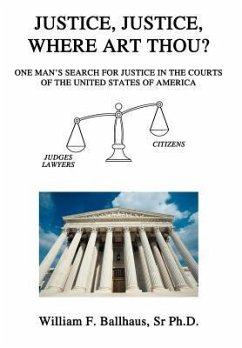Maurice Salles / John A. Weymark / Marc Fleurbaey (eds.)
Justice, Political Liberalism, and Utilitarianism
Herausgeber: Fleurbaey, Marc; Weymark, John A.; Salles, Maurice
Maurice Salles / John A. Weymark / Marc Fleurbaey (eds.)
Justice, Political Liberalism, and Utilitarianism
Herausgeber: Fleurbaey, Marc; Weymark, John A.; Salles, Maurice
- Gebundenes Buch
- Merkliste
- Auf die Merkliste
- Bewerten Bewerten
- Teilen
- Produkt teilen
- Produkterinnerung
- Produkterinnerung
This collection of essays on Harsanyi and Rawls is intended for audiences across economics, political science, and philosophy.
Andere Kunden interessierten sich auch für
![David Ricardo. An Intellectual Biography David Ricardo. An Intellectual Biography]() Sergio CremaschiDavid Ricardo. An Intellectual Biography180,99 €
Sergio CremaschiDavid Ricardo. An Intellectual Biography180,99 €![The Inexorable Immortals The Inexorable Immortals]() Derek HammersleyThe Inexorable Immortals24,99 €
Derek HammersleyThe Inexorable Immortals24,99 €![Justice, Justice, Where Art Thou? Justice, Justice, Where Art Thou?]() William F BallhausJustice, Justice, Where Art Thou?23,99 €
William F BallhausJustice, Justice, Where Art Thou?23,99 €![The Political Economy of Stalinism The Political Economy of Stalinism]() Paul R. GregoryThe Political Economy of Stalinism80,99 €
Paul R. GregoryThe Political Economy of Stalinism80,99 €![Le rôle des jardins zoologiques Le rôle des jardins zoologiques]() Maximilian BenatarLe rôle des jardins zoologiques26,99 €
Maximilian BenatarLe rôle des jardins zoologiques26,99 €![Sobre o papel dos jardins zoológicos Sobre o papel dos jardins zoológicos]() Maximilian BenatarSobre o papel dos jardins zoológicos26,99 €
Maximilian BenatarSobre o papel dos jardins zoológicos26,99 €![Zur Rolle zoologischer Gärten Zur Rolle zoologischer Gärten]() Maximilian BenatarZur Rolle zoologischer Gärten39,90 €
Maximilian BenatarZur Rolle zoologischer Gärten39,90 €-
-
-
This collection of essays on Harsanyi and Rawls is intended for audiences across economics, political science, and philosophy.
Produktdetails
- Produktdetails
- Verlag: Cambridge University Press
- Seitenzahl: 476
- Erscheinungstermin: 3. März 2016
- Englisch
- Abmessung: 235mm x 157mm x 32mm
- Gewicht: 917g
- ISBN-13: 9780521640930
- ISBN-10: 0521640938
- Artikelnr.: 36753829
- Herstellerkennzeichnung
- Libri GmbH
- Europaallee 1
- 36244 Bad Hersfeld
- gpsr@libri.de
- Verlag: Cambridge University Press
- Seitenzahl: 476
- Erscheinungstermin: 3. März 2016
- Englisch
- Abmessung: 235mm x 157mm x 32mm
- Gewicht: 917g
- ISBN-13: 9780521640930
- ISBN-10: 0521640938
- Artikelnr.: 36753829
- Herstellerkennzeichnung
- Libri GmbH
- Europaallee 1
- 36244 Bad Hersfeld
- gpsr@libri.de
1. An introduction to justice, political liberalism, and utilitarianism
Marc Fleurbaey, Maurice Salles and John A. Weymark; Part I. Themes from
Rawls: 2. John Rawls's theory of justice: some critical comments John C.
Harsanyi; 3. Rawls, responsibility, and distributive justice Richard
Arneson; 4. Improving our ethical beliefs James Griffin; Part II.
Harsanyi's Impartial Observer and Social Aggregation Theorems: 5.
Harsanyi's impartial observer is not a utilitarian John E. Roemer; 6.
Social aggregation and the expected utility hypothesis Charles Blackorby,
David Donaldson and John A. Weymark; 7. A welfarist version of Harsanyi's
aggregation theorem Claude d'Aspremont and Philippe Mongin; 8. Preference
aggregation after Harsanyi Matthias Hild, Richard Jeffrey and Mathias
Risse; Part III. Goodness and Well-Being: 9. Can there be a
preference-based utilitarianism? John Broome; 10. Harsanyi, Rawls and the
search for a common currency of advantage Robert Sugden; 11. Utilitarianism
versus fairness in welfare economics Marc Fleurbaey and François Maniquet;
12. Rationality and want-satisfaction Brian Barry; Part IV. Sharing the
Gains from Social Cooperation; 13. Naturalizing Harsanyi and Rawls Ken
Binmore; 14. The social contract naturalized Brian Skyrms; 15. An
alternative model of rational cooperation Edward F. McClennen; Part V.
Rights and Liberties: 16. Republican political theory Philip Pettit; 17.
Rule utilitarianism and liberal priorities Jonathan Riley.
Marc Fleurbaey, Maurice Salles and John A. Weymark; Part I. Themes from
Rawls: 2. John Rawls's theory of justice: some critical comments John C.
Harsanyi; 3. Rawls, responsibility, and distributive justice Richard
Arneson; 4. Improving our ethical beliefs James Griffin; Part II.
Harsanyi's Impartial Observer and Social Aggregation Theorems: 5.
Harsanyi's impartial observer is not a utilitarian John E. Roemer; 6.
Social aggregation and the expected utility hypothesis Charles Blackorby,
David Donaldson and John A. Weymark; 7. A welfarist version of Harsanyi's
aggregation theorem Claude d'Aspremont and Philippe Mongin; 8. Preference
aggregation after Harsanyi Matthias Hild, Richard Jeffrey and Mathias
Risse; Part III. Goodness and Well-Being: 9. Can there be a
preference-based utilitarianism? John Broome; 10. Harsanyi, Rawls and the
search for a common currency of advantage Robert Sugden; 11. Utilitarianism
versus fairness in welfare economics Marc Fleurbaey and François Maniquet;
12. Rationality and want-satisfaction Brian Barry; Part IV. Sharing the
Gains from Social Cooperation; 13. Naturalizing Harsanyi and Rawls Ken
Binmore; 14. The social contract naturalized Brian Skyrms; 15. An
alternative model of rational cooperation Edward F. McClennen; Part V.
Rights and Liberties: 16. Republican political theory Philip Pettit; 17.
Rule utilitarianism and liberal priorities Jonathan Riley.
1. An introduction to justice, political liberalism, and utilitarianism
Marc Fleurbaey, Maurice Salles and John A. Weymark; Part I. Themes from
Rawls: 2. John Rawls's theory of justice: some critical comments John C.
Harsanyi; 3. Rawls, responsibility, and distributive justice Richard
Arneson; 4. Improving our ethical beliefs James Griffin; Part II.
Harsanyi's Impartial Observer and Social Aggregation Theorems: 5.
Harsanyi's impartial observer is not a utilitarian John E. Roemer; 6.
Social aggregation and the expected utility hypothesis Charles Blackorby,
David Donaldson and John A. Weymark; 7. A welfarist version of Harsanyi's
aggregation theorem Claude d'Aspremont and Philippe Mongin; 8. Preference
aggregation after Harsanyi Matthias Hild, Richard Jeffrey and Mathias
Risse; Part III. Goodness and Well-Being: 9. Can there be a
preference-based utilitarianism? John Broome; 10. Harsanyi, Rawls and the
search for a common currency of advantage Robert Sugden; 11. Utilitarianism
versus fairness in welfare economics Marc Fleurbaey and François Maniquet;
12. Rationality and want-satisfaction Brian Barry; Part IV. Sharing the
Gains from Social Cooperation; 13. Naturalizing Harsanyi and Rawls Ken
Binmore; 14. The social contract naturalized Brian Skyrms; 15. An
alternative model of rational cooperation Edward F. McClennen; Part V.
Rights and Liberties: 16. Republican political theory Philip Pettit; 17.
Rule utilitarianism and liberal priorities Jonathan Riley.
Marc Fleurbaey, Maurice Salles and John A. Weymark; Part I. Themes from
Rawls: 2. John Rawls's theory of justice: some critical comments John C.
Harsanyi; 3. Rawls, responsibility, and distributive justice Richard
Arneson; 4. Improving our ethical beliefs James Griffin; Part II.
Harsanyi's Impartial Observer and Social Aggregation Theorems: 5.
Harsanyi's impartial observer is not a utilitarian John E. Roemer; 6.
Social aggregation and the expected utility hypothesis Charles Blackorby,
David Donaldson and John A. Weymark; 7. A welfarist version of Harsanyi's
aggregation theorem Claude d'Aspremont and Philippe Mongin; 8. Preference
aggregation after Harsanyi Matthias Hild, Richard Jeffrey and Mathias
Risse; Part III. Goodness and Well-Being: 9. Can there be a
preference-based utilitarianism? John Broome; 10. Harsanyi, Rawls and the
search for a common currency of advantage Robert Sugden; 11. Utilitarianism
versus fairness in welfare economics Marc Fleurbaey and François Maniquet;
12. Rationality and want-satisfaction Brian Barry; Part IV. Sharing the
Gains from Social Cooperation; 13. Naturalizing Harsanyi and Rawls Ken
Binmore; 14. The social contract naturalized Brian Skyrms; 15. An
alternative model of rational cooperation Edward F. McClennen; Part V.
Rights and Liberties: 16. Republican political theory Philip Pettit; 17.
Rule utilitarianism and liberal priorities Jonathan Riley.









